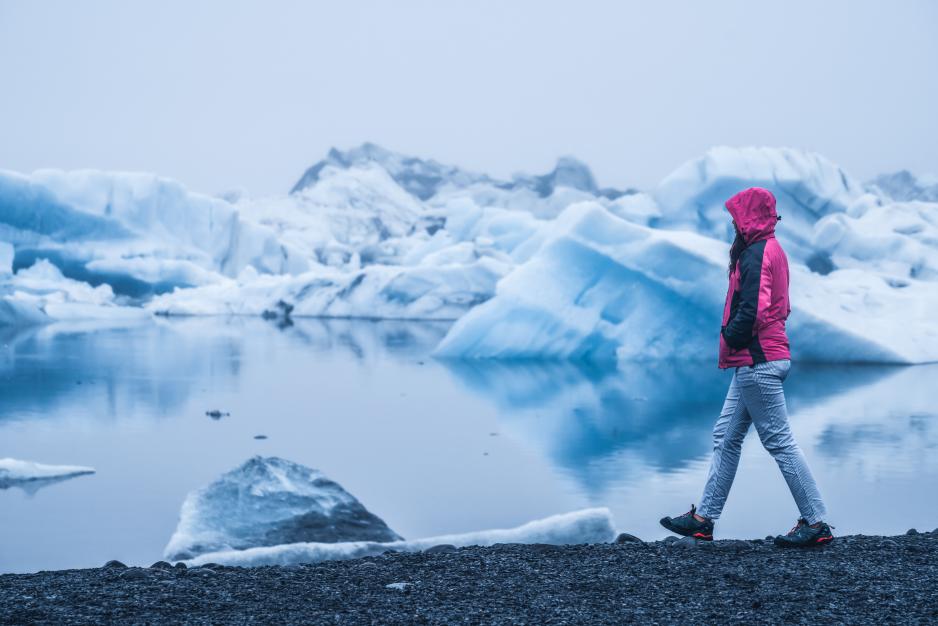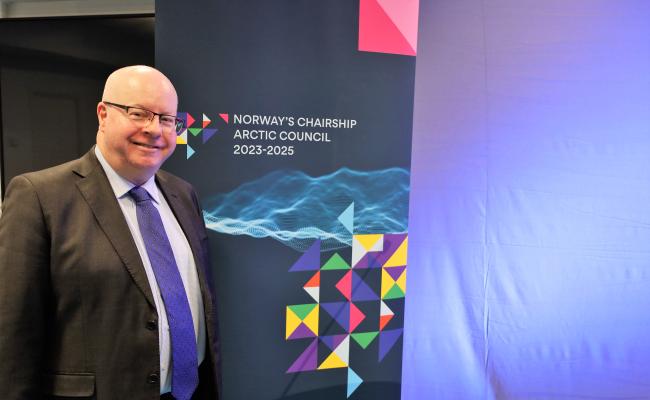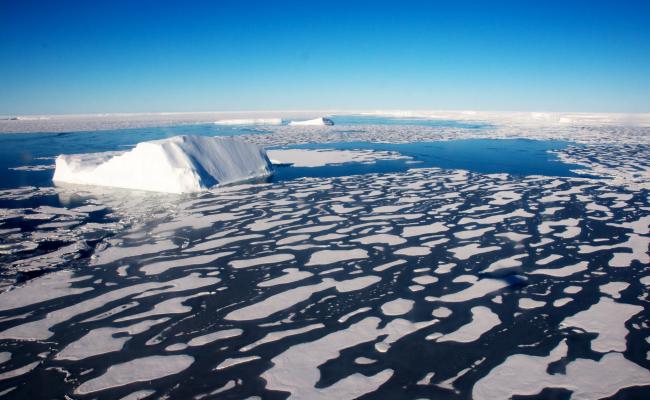Op-ed: As Era of “Global Boiling” Commences, Slowing the Arctic’s Meltdown Becomes More Urgent

To slow the Arctic meltdown, a new research report urges the G20 countries to implement fast-acting strategies to cut “super pollutants” black carbon and methane, and to conduct a study on global risks from a warming Arctic.
"G20 leaders should take action to protect the Arctic and significantly slow climate change", says Arctic Policy Director Kay Brown at the Environmental organization Pacific Environment.
The opinions expressed here belongs to the author and do not represent the views of High North News.
Ahead of the upcoming G20 heads of state meeting from September 9-10 in New Delhi, a report from the G20’s own think-tank - the T20, is imploring world leaders to cut short-lived climate pollutants to slow the rate of warming, protect the Arctic, and keep the 1.5°C guardrail within reach.
The summit takes place against the backdrop of a worsening climate crisis increasingly impossible to ignore. As the world's leading industrial nations, G20 countries are responsible for more than 80% of climate warming emissions.
To slow the Arctic meltdown, a new research report urges the G20 countries to implement fast-acting strategies to cut “super pollutants” black carbon and methane, and to conduct a study on global risks from a warming Arctic.
The report — “The Consequences of Arctic Amplification in a Warming World” — was published by ThinkTwenty, or T20, an official G20 Engagement Group that brings together think tanks and high-level policy experts.
This new research reveals the interlocking effects causing the Arctic to warm four times faster than the global average. Amplification has caused the Arctic’s reflective sea ice to shrink, increasingly hotter ocean temperatures and more ice to melt in a self-amplifying feedback loop.
Arctic-related climate changes impact the globe.
Black carbon warms the Arctic’s atmosphere and blackens the snow and ice, reducing reflectivity, increasing snow and ice melt.
Generated from the incomplete combustion of fossil fuels, black carbon is the strongest light-absorbing component of particulate matter and a massive contributor to climate heating, especially in the Arctic, where black carbon impacts are magnified.
Permafrost thaw is another self-amplifying feedback loop accelerated by Arctic warming, leading to release of carbon dioxide (CO2), methane, and nitrous oxide into the atmosphere.
Unless checked, “permafrost thaw could release climate pollutants equivalent to the remaining carbon budget of the 1.5°C target,” the report says.
Arctic-related climate changes impact the globe. Declines in summer Arctic sea ice correlate with the extremely strong Indian summer monsoons, and Arctic sea ice loss has been linked to increased heat waves in California.
Also read
Warming also threatens the livelihoods, cultures and food security of Arctic Indigenous peoples, who have been warning the world about their melting homeland for decades.
“To reduce the rate of Arctic warming and respond to the near-term climate emergency, the G20 should implement fast-acting strategies that cut non-CO2 super pollutants, particularly short-lived climate pollutants (SLCPs), including methane, black carbon, hydrofluorocarbon, and tropospheric ozone, which can slow warming in the near term and slow the loss of Arctic sea ice,” the report says.
“Cutting non-CO2 super-pollutants, rather than solely targeting CO2, can slow warming four times faster, avoiding up to .6C of warming by 2050 and up to 1.2°C by 2100. These measures can reduce the rate of warming in the Arctic by two-thirds.”
The report urges that the International Maritime Organization’s ban on using heavy fuel oil (HFO) in the Arctic — one of the dirtiest fuels on the planet — take effect before July 2024, and that the waivers and exemptions in effect until 2029 be eliminated, which could reduce black carbon emissions by up to 30%.
Speeding up the HFO ban would result in significant reductions in potent climate pollutants, and can be done quickly and simply.
Combining better fuel choices with existing technology, ships operating both within and near the Arctic would see black carbon emissions reductions of 90% by using lighter distillate fuels and particulate filters.
The era of global boiling has arrived.
Although only a few ships currently have particulate filters, all ships in the Arctic could and should be modified to use this existing technology long used in land transport to reduce diesel fuel emissions.
The 2023 G20 summit comes as Earth’s hottest days commanded new attention to the urgency of scaling up renewable energy and phasing out fossil fuels.
Speaking at UN Headquarters July 27, Secretary-General Antonio Guterres warned that “the era of global warming has ended” and “the era of global boiling has arrived.”
Guterres implored the G20 nations to set new national emissions targets and urged all countries to reach net zero emissions by mid-century.
G20 leaders must act on Guterres’ adjuration: we call on G20 leaders to accelerate the just and equitable transition from fossil fuels to renewable energy, while stopping oil and gas expansion and phasing out coal by 2040.
To slow the Arctic meltdown and global climate change, G20 leaders also must implement the T20 report’s recommendations and take immediate action to cut non-CO2 super-pollutants, ban HFOs and reduce the rate of warming in the Arctic by two-thirds.




